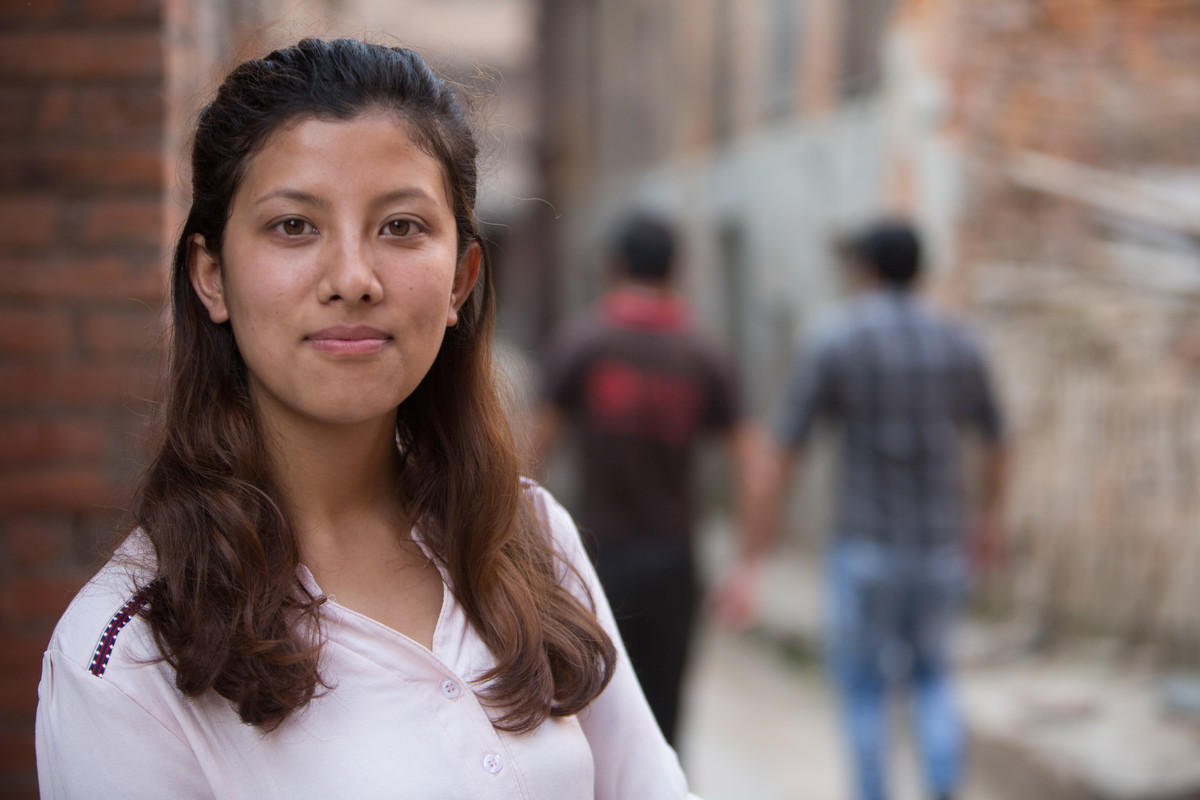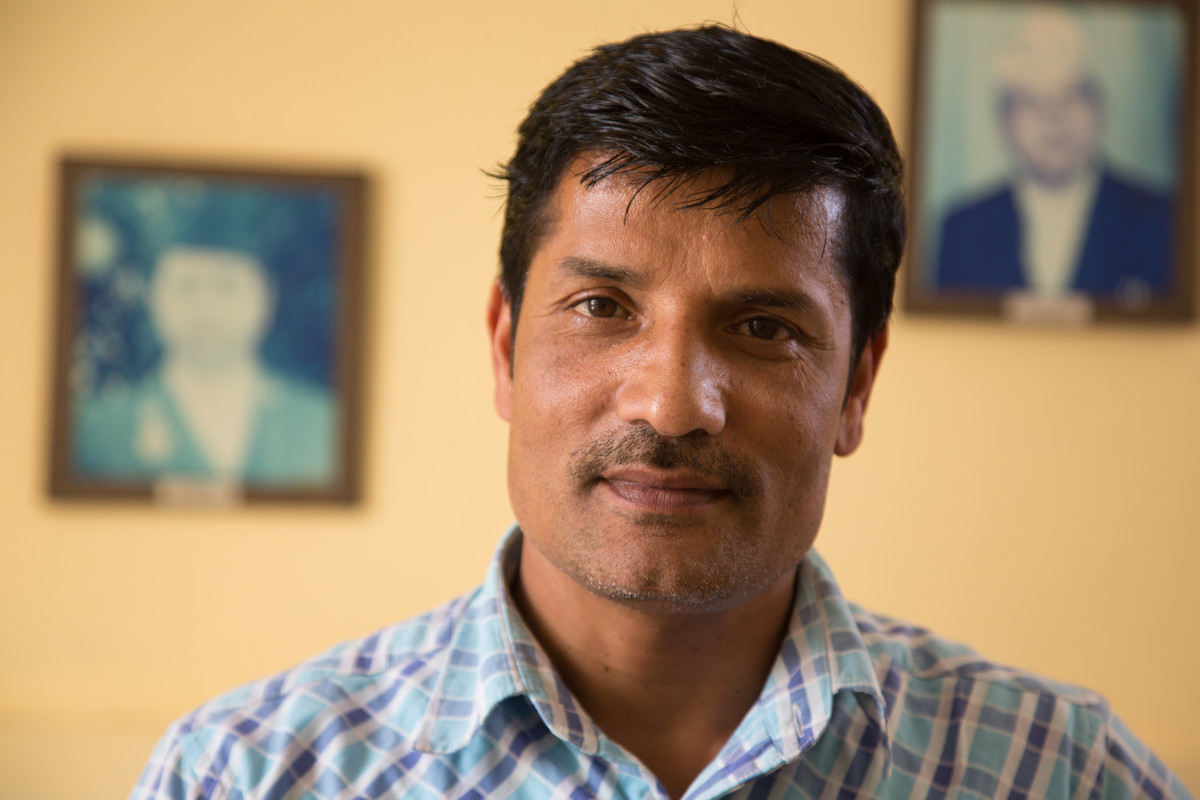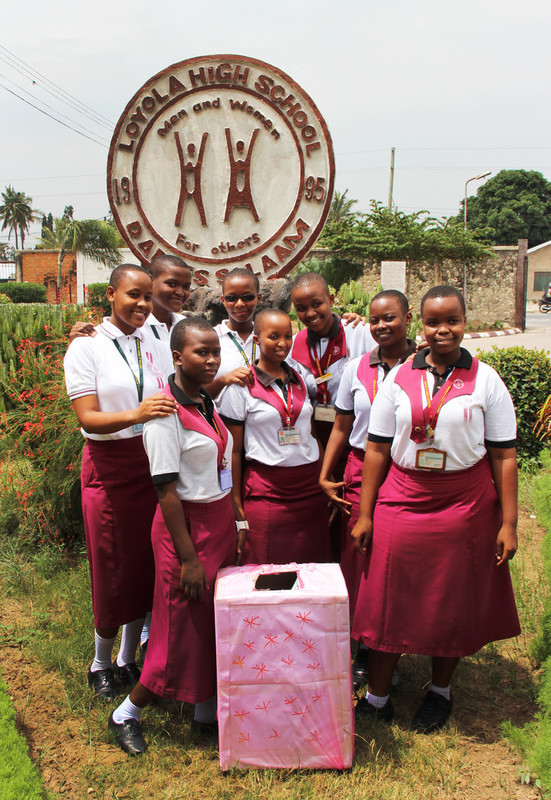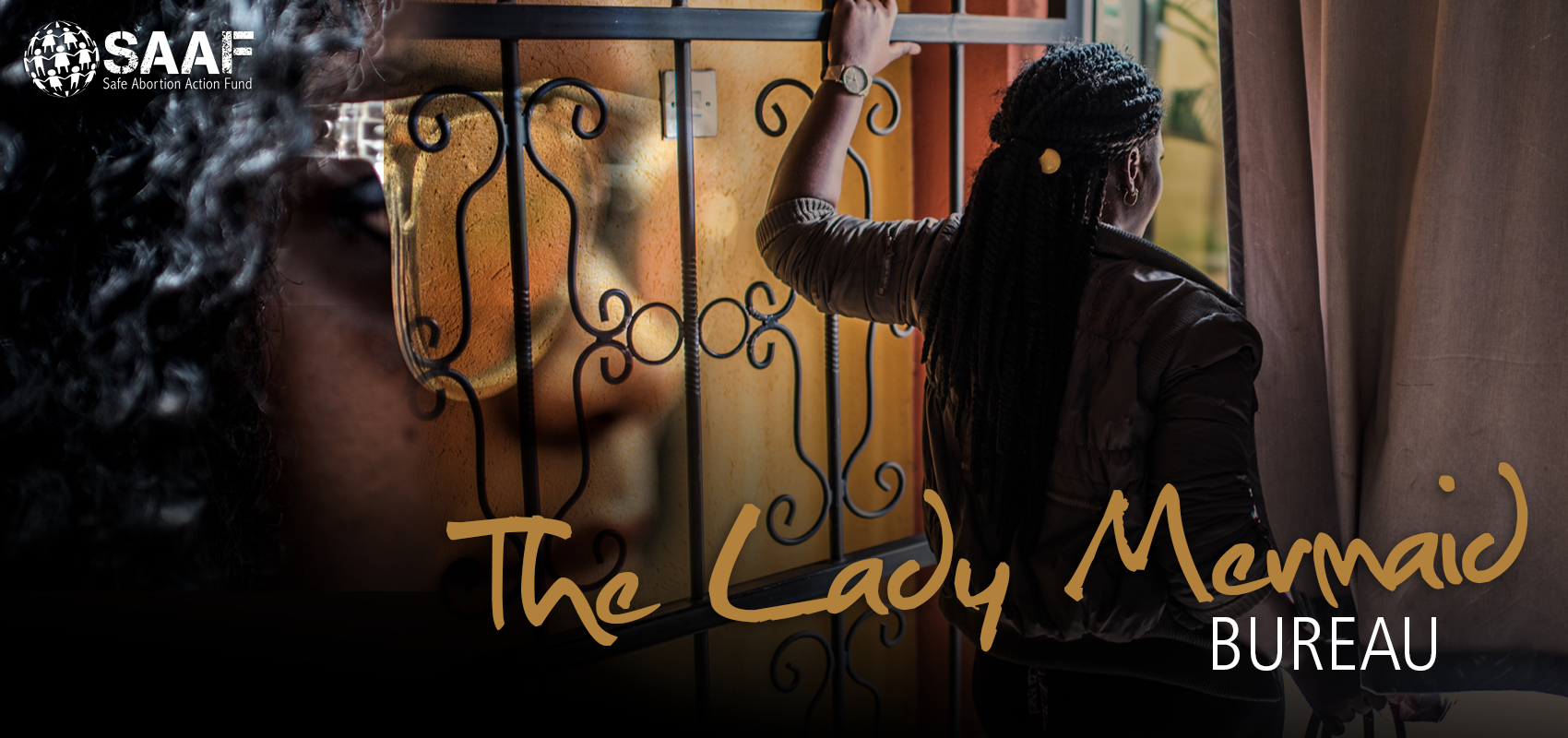
Every young person has to make life-changing decisions about their sexual and reproductive health. However many of them cannot access clear, evidence-based information. IPPF's comprehensive sexuality education programmes enable young people to make informed decisions about their sexuality and health, while building life skills and promoting gender equality.
Articles by Comprehensive Sex Education

"Girls in rural areas often face more problems than girls in the city"
“Girls in rural areas often face more problems than girls in the city,” says 23-year-old Sajana Kergi. “For example, when they’re menstruating they might have to stay at home and not touch any kitchen materials, or have to drop school. “It varies from family to family, but generally the more traditional and superstitious a family is, the more problems a girl will have.” For the past two years, Sajana has been volunteering as a peer educator and mentor for the Family Planning Association of Nepal (FPAN), since hearing about the programme on Facebook. After an orientation and training programme, she visited different rural schools to give girls training on menstruation management. She now runs classes in schools in and around Bhaktapur. The classes aim to create a relaxed environment for young people to talk and learn about sexual health and rights. This fills a major gap in their learning and knowledge, Sajana says. “At school, these subjects are in the curriculum, but teachers skip these lessons and don’t talk about these issues openly,” she explains. “The teachers don’t create a comfortable environment, and this makes students hesitant to talk about these issues, so there’s no proper knowledge.” FPAN classes are an opportunity for young people to speak openly about sexual health and sexuality therefore are vital.

How Family Planning Association of Nepal Youth programmes are saving teens on the brink of suicide
“One time, a sixteen-year-old girl came to see us with an unwanted pregnancy, on the point of suicide,” says Sharad Kumar Argal. “She had been abused by her family and the baby was the result of incest. She was about to commit suicide.” The girl had never heard of safe abortion, explains Sharad, who works as Kathmandu Valley branch manager for the Family Planning Association of Nepal (FPAN), the country’s leading family planning NGO. “Then, very luckily, she happened to come to our youth-friendly centre. From there, she found out about abortion services and she had an abortion through FPAN. FPAN brought her back from the brink of suicide.” For Sharad, FPAN’s youth programmes are the lifeblood of the organisation. In his twenty years at the organisation, he has seen major changes in family planning law and sexual rights in Nepal, from the legalisation of abortion in 2002, to the introduction of National Family Planning Day in 2014. One of the changes that he talks passionately about is FPAN’s work supporting young people, and the role of youth volunteers in these activities. “If you go back 20 years, even talking to people about family planning and especially condoms was very difficult,” he says. “People were hesitant and didn’t want to hear about that in a public space. That made family planning very difficult: we needed to do home to home visits to make family planning available.” “But now, with the passage of time, this has become much better and easier. These days even our youth peer educators are involved in distributing condoms and pills.” The data underlines this change. “The use of family planning 20 years’ ago was only 20-25 per cent,” Sharad says. “Whereas now, more than 50 per cent have access to family planning services.”

Myth-busting facts about withdrawal
Decided you want to learn more about contraception options? Find out more with us!
Tackling Sexual & Reproductive Coercion through the 2030 Agenda
The United Nations Headquarters in New York is currently hosting the High-Level Political Forum on Sustainable Development, a ten-day gathering of government representatives, UN agencies, civil society and other stakeholders to review current global progress towards achieving the 2030 Agenda for Sustainable Development. The 2030 Agenda, with its 17 Sustainable Development Goals, is an ambitious global framework with the potential to change lives. It covers everything from health, gender equality, climate change, sanitation and energy, nutrition, poverty, and employment. Within the Agenda are specific targets to ensure universal access to sexual and reproductive health information and services and reproductive rights. However, we still have a long way to go in this area. We still live in societies where heteronormative and patriarchal social norms police and stigmatize women’s sexuality, and prevent women and girls from seeking and accessing the information and services they need to protect themselves and live a healthy life. In many countries, governments have put into place laws, policies and practices that interfere with the lives of individuals whose sexual orientation, gender identity and expression or sex characteristics may not conform with a perceived “norm”. These laws only serve to perpetuate and increase inequalities by denying vital health care to people who are already vulnerable, for fear of harm, arrest or even death. Restrictive laws and policies limit women’s ability to access contraception and safe, legal abortion services. In over 70 countries, young people require a parent’s signature to access sexual and reproductive health care. Violence against women and girls is pervasive: around 120 million girls worldwide have experienced forced sex at some point in their lives, mostly at the hands of male partners who may be protected from prosecution by gender discriminatory laws. Policies and laws that dictate sexual and reproductive choice can be harmful and coercive by restricting access to healthcare, limiting individuals’ ability to live their lives free from rigid and unrealistic societal standard. The 2030 Agenda presents a renewed opportunity for governments to achieve their sexual and reproductive health goals, and for advocates to hold governments to account for sexual and reproductive health and rights within this framework. Activists can use the 2030 Agenda to demand a more equitable legal system that protects their human rights, realises their right to health care, and ensures that they are able to prosper in the community. During the High-Level Political Forum on Sustainable Development, IPPF partnered with OutRight Action International to host an event titled, “From Side-Line to Centre: Using the 2030 Agenda to Tackle Sexual and Reproductive Coercion.” The panel, made up of speakers from the Guttmacher Institute, OutRight, IPPF Western Hemisphere Region and IPPF Central Office, and moderated by a youth advocate from Bulgaria, explored how policies and practices that seek to restrict access to life-saving information and services, including modern contraception, abortion and comprehensive sexuality education, limit the ability of women, LGBTI people and their families to live free from harm, violence and coercion, and will hinder our ability to achieve the Sustainable Development Goals by 2030. Sexual and reproductive health and rights underpin every aspect of sustainable development and economic growth, and are especially central to eradicating poverty and promoting prosperity. When women and LGBTI people can control their choices about their bodies, and be safe and healthy in their sexual and reproductive lives, they are better able to participate in education and the labour market, to care for their families, and have more capacity to contribute to their communities and social life. When Member States adopted the 2030 Agenda, they also adopted equity as a fundamental principle - “no one left behind”. However, we will not be able to realise this ambition if legal and policy barriers exclude millions of people, including the most marginalised and vulnerable people from all corners of the world, from accessing these services. Speakers emphasised the importance of data. We cannot act on inequality if we don’t have the data to show that it exists - and without accurate statistics, it’s hard to have a clear picture of who is being left behind, and who is not having their needs met. We have called on member states to collect comprehensive, accurate data which is disaggregated by age, sex, and key population status, as well as sexual orientation, gender identity or expression and sex characteristics (or other characteristics specific to national context) so that we can design effective and responsive programmes. In order to ensure that everyone, regardless of age, sexual orientation, gender identity or expression and sex characteristics is free to fully exercise their sexual and reproductive rights, we must not shy away from inequality or pretend it’s not happening. We need to recognise it, understand the drivers, and work from the ground up to uproot the social determinants and structural barriers that keep people at risk. We are not equal until we are all equal.

Breaking through barriers to family planning in 21st-century Nepal
The past 15 years have been turbulent for this small, landlocked country. Poverty is widespread and the earthquake of 2015 had a devastating effect. Almost 9,000 people were killed and over 22,000 injured, while the effect on houses and buildings was catastrophic: around 800,000 homes were destroyed or damaged, and 3 million people were displaced. The earthquake hit Nepal’s health sector hard. Clinics were destroyed up and down the country, and for the millions displaced from home and forced into tents, accessing health services – including family planning – became difficult, sometimes impossible. Contraception and family planning: the issues Even before the earthquake, family planning in Nepal was fraught with problems. Around 14 million Nepalis live in mountainous or hilly regions, often in small, remote villages many miles from the nearest town, where health facilities are often scarce, understaffed and poorly supplied with drugs. Where roads exist, they are often potholed, sometimes impassable, making road travel arduous. For the millions of Nepalis living beneath or near the poverty line, travelling on foot is the only option, and, even when they can afford to rent a space in a car, vehicles are scarce. “When I was about to give birth, we called for an ambulance or a vehicle to help but even after five hours of calling, no vehicle arrived,” recalls 32-year-old Muna Shrestha. “The birth was difficult. For five hours I suffered from delivery problems.” Every year, tens of thousands of Nepalis give birth without any medical help at all: just 36% of births are attended by a doctor, nurse or midwife. Maternal mortality is one of the leading causes of death among women. Myths, misconceptions and cultural resistance to contraception A lack of knowledge about family planning and contraception compounds the issue – a problem that becomes even greater among Nepal’s many rural communities and certain ethnic groups. In thousands of households, hostility towards family planning has its roots in deep-rooted customs and beliefs. In Nepal’s largely patriarchal culture, it remains the norm for couples to have four or more children: preference for sons means women are forced to go on having children until boys are born. Contraception remains an alien, uncomfortable idea for millions of Nepalis and is tightly controlled by men: women often need consent from their husbands to use contraception. Misconceptions are also rife. “I’ve heard the coil can cause cancer,” says Muna Shrestha, a farmer from Kavre district. “There are so many side effects to these devices.” In many households, contraception is deemed to fly in the face of ancient cultural traditions. “It’s thought that men who have had vasectomies won’t be able to perform the rituals after their parent’s death,” explains Binu. “Parents think that God won’t accept that, so they don’t allow men to have vasectomies.” Pasang Tamang, an FPAN volunteer in Gatlang, tells of one man who threatened to kill his wife, the doctor and any health worker who provided family planning services to his wife. Spreading knowledge to remote regions Meeting the family planning needs of Nepal’s 28 million people, particularly those living in remote mountain villages, takes careful planning, complex logistics, skilled staff and money. Since 1959, the Family Planning Association of Nepal (FPAN), has been providing better access to family planning and maternal health, ensuring its services penetrate even the most remote corners of this rugged mountain country. Reaching communities in far flung parts of this mountainous country is a logistical challenge, but one FPAN sees as crucial to its work. Teams of staff and volunteers spend days travelling by vehicle or, if necessary, on foot to make sure they reach people. “Accessibility is a big challenge, especially in rainy season when the road gets blocked and our staff have to walk carrying all the devices,” says Devendra Amgaim, FPAN’s project coordinator in Rasuwa, northern Nepal. “I go to remote places, where people and don’t know about family planning,” says Binu Koraila, an FPAN staffer in Rasuwa. Her role is spread knowledge about family planning and contraception among rural communities and to train the government workers who staff the health posts, many of which are many hours’ walk from the hamlets and villages that perch on the Langtang mountains. Cultural beliefs High up in the mountains of northern Nepal, close to the border with Tibet, lies the village of Gatlang. This cluster of timber-framed houses and Buddhist stupas is home to some of Nepal’s 1.5 million Tamang people, an ethnic group with cultural traditions stretching back centuries. Life here is strictly patriarchal. Marriage often takes place young – from around 14 years old – and girls are given little choice about when or whom they will marry. “My parents forced me to get married,” says 20-year-old Jomini. Jomini married at the age of sixteen, to a man eight years her senior. “It’s not easy being married, it’s difficult,” she says. “When I got married, I didn’t know anything about what happens after marriage, about the physical side … and after the birth of my first child I had many difficulties.” According to Nepali law, marriage under the age of 20 is illegal. But over 40% of 20 to 24 year olds are married before they turn 18. The effect on girls’ lives can be devastating: physical problems from teenage pregnancy, psychological trauma, thwarted education and employment opportunities are widespread, particularly in remote regions. Access to contraception means nothing unless people understand why it is important and make the decision – armed with the correct information – to use it freely themselves. Busting the myths that can shape people’s ideas about family planning is complex but vital. FPAN does it by spending time and resources on teams who go in and talk to women and families in ways that are tailored to their needs. “Rasuwa district has a very low literacy rate, so FPAN … gives people the right information about family planning using visual aids, images and charts,” Devendra Amgaim explains. “Reproductive health female volunteers also translate information into local languages. All this helps make information simpler, more effective and easily understandable.” The organisation strives to make sure it is sensitive to the structures that shape life in Rasuwa. This is also pragmatic: once you have won the trust and confidence of community leaders, it is much easier to talk to the rest of their community. “FPAN seeks out the people who have influence in the communities – the religious leaders, the teachers, the female voluntary workers,” Devendra says. “We give them orientation and knowledge regarding those misconceptions. They then create awareness.” Stories Read more stories from Nepal

Keeping girls in school with sanitary pads
Only 2% of Tanzanian schoolgirls have access to disposable sanitary pads. More commonly, anything from cloth rags to socks, leaves or dry grass are used. One girl at a school in Tanzania, Alice Magaka, came up with a clever way to tackle the problem so pupils didn’t have to miss school. "It all began one day when I was in the matron's office," Alice says. "Suddenly, one of the younger schoolgirls came in crying. She had bled through her clothes and the boys were teasing her about it. She said that she didn't have any pads and had to use cloth rags." "It became clear to me then that the reason many of my schoolmates stayed home several days every month was that they didn't have any reliable menstrual protection." Alice is a senior at Loyola High School. She's in the middle of final exams, but has already been pre-admitted to a university leadership programme. Like all the other girls at school, she wears her hair short and a white and burgundy school uniform. Loyola High School in Dar es Salaam is a private school with 1,200 students, of which about half are girls. Most students that attend here come from upper middle class families. It is also a Christian school, and as such they accept students from low-income families free of charge. These are the students that can't afford to buy disposable pads and stay home several days a month because they worry they'll bleed through their clothes. But the students themselves wanted to make a change. "I read about someone who collected menstrual protection for others in a magazine and I thought surely we could do the same thing here so we created The Pink Box," says Alice. Alice and five of her schoolmates quickly put together The Pink Box – a sturdy cardboard box draped in pink cloth and decorated with stars. The Pink Box is placed in the schoolyard once a month. All students that can spare disposable pads leave a couple each in it. “It might not be easy to share a whole pack at once. But most can give away a pad now and then,” says Alice. At the end of the day, the school matron collects the box and empties it. And then there are plenty of pads for everyone in need. The Pink Box is a simple idea that actually has a big impact. Thanks to The Pink Box the girls' school attendance has increased. Now, no one has to stay home during their period. The school matron Epina Mnyang’ali says four to five girls come in every day asking for pads. "Nobody finds it embarrassing to come to me. I'm like a mother." At Loyola High School they have also introduced a Girls Day which means that once a year, all boys and male teachers stay home. Only girls and women come to school. They talk about how the girls feel about school and what needs they have. What kind of academic support do they need? Does anything need changing? Girls' Day has contributed to the fact that the girls are getting top grades. All of the senior girls have been accepted to higher education. During Girls' Day, former students who now work as doctors or nurses talk to the girls about the menstrual cycle and reproduction. Alice explains what the boys say about The Pink Box and about helping out. "At first we didn't include boys. In our culture it's not so easy to talk about periods with guys, so it was a challenge. But when we asked them, they wanted to help. And now they're also spreading the word about the campaign so that more people at school are aware of it. I hope it also leads to them not teasing us when we're on our periods." Thanks very much for this text by Ulrika Hammar which was originally commissioned for Ottar Magazine www.ottar.se. The photos are courtesy of Carl Osvald. Ottar is Sweden’s largest sexual politics themed magazine, and focuses on topics such as love, sexuality, politics and culture. It is an independent magazine but linked to IPPF’s Member Association in Sweden RFSU.

Bringing sex education out of the classroom and into the library in Queens
Planned Parenthood partners with Queens libraries to bring sex education out of the classroom and into the library. The partnership employs the library's traditional role as a source of information creating a safe space for today's teenagers to ask for support. Photography © IPPF/Bill Kotsatos Taking sex education to teens in Queens, NY

Safe Abortion Action Fund in Uganda
Safe abortion is heavily restricted in Uganda, yet gender inequality and sexual violence are widespread. Hosted by IPPF, the Safe Abortion Action Fund is helping vulnerable women to turn their lives around. People are learning about safe abortion and fewer girls are dying. Community attitudes have been transformed and social stigma has started to give way to human rights and understanding. Read the success stories and meet the people behind the scenes

Taking sex education to teens in Queens
When Gary Hawkins began working at the library he assumed he would help teenagers with their homework or use his experience as DJ G Money to encourage them to pursue an interest in music. He discovered his duties were much broader when a teenage girl approached him for help. Her boyfriend had been arrested and she believed she was pregnant. Mr Hawkins knew what to do. Providing a listening ear and support, he talked to her about the different types of health services available in the New York borough of Queens, referring her to counselling. Mr Hawkins, a youth counsellor at Queens Library for Teens, was one of the first to benefit from a ground-breaking partnership with Planned Parenthood of New York City to help answer those tricky questions. It employs the library’s traditional role as a source of information and builds on the trust fostered by staff like him to make sure today’s teenagers - or anyone else - know they can ask for support. Staff at Queens Library branches have received training in how to handle questions about everything from sexually transmitted diseases to gender identity. Mr Hawkins said he never expected to face such a range of issues. “When they first hired me I was thinking about music mostly, I’m a youth counsellor so I expected to talk to the kids and help out with homework, I’m thinking music questions, studio stuff, but every day is something different. Me and those kids build relationships." The idea for the tie-up came from Tamara Michel, a community health co-ordinator at Queens Library. Librarians would come to her when they needed advice on tricky questions about health, sexuality and identity. “A lot of times if people didn’t know the answer to a health-related question or if they didn’t know where to find that information, it would come back to me,” she said. “I think maybe several years ago, people thought, ‘Oooh, can I answer that question?’” Staff wanted to help but no-one wanted to say the wrong thing or be accused of promoting personal values – a frequent worry around the subject of abortion, for example, a politically contentious issue. Those questions are particularly fraught in Queens. The borough has long been regarded as New York’s melting pot, home to immigrant communities from Latin America to the Far East, all with different religious and cultural values. In 2012 Ms Michel approached Planned Parenthood of New York City for help. The first step was to develop a set of 15 guiding principles that reflected library values and gave staff a solid foundation from which to address the issues. They include encouraging young people to talk to a parent or a trusted adult, to demonstrate acceptance of all sexual orientations, to communicate in a respectful manner and when to refer customers to other services. “It’s a framework so that all of our staff can be on the same page, making sure we are sending clear and consistent messages around health and sexuality,” said Ms Michel. That went hand in hand with 18 hours of training for the first tranche of staff. They learned how to set questioners at ease by validating and normalising their questions, saying things like “that's a good question” or "a lot of people wonder that". Melissa Malanuk, co-ordinator of teen services, said the training had given her a skillset and a level of comfort and confidence to take control of the conversation. “Like when someone asks you something then you repeat the question, which sort of sets the tone that this is an OK conversation for us to have - it’s acceptable and I’m not judging you on this,” she said. Almost 200 staff, representing all of the library’s branches, have been trained since the programme began. Planned Parenthood has also helped identify books, brochures and links to health providers. Randa Dean, Senior Director of Adult and Professional Services at Planned Parenthood of New York City, said the partnership was a natural fit. Bringing sex education out of the classroom and into the library made sense, she said, when so many people were already bringing their questions to librarians. “They may not know where to go for this information so they are going to the place they trust the most, and there’s no reason why the staff at the library and librarians can’t provide that basic information for them,” she said. "They are a trusted resource and with a little bit of partnership from us they have built their ability to be basic providers of that information, and they can connect to the more expert provision.” Some library staff needed more convincing than others, but the feedback has been overwhelmingly positive. Kacper Jarecki, community library manager at the South Hollis branch, said it was simply an extension of the role played by libraries through history. “We have a lot of books, a lot of materials that are open to us. “So of course, we are fans of having people educated and knowing what kinds of options and choices they have.” The most important factor is the human touch and a safe environment to ask questions. Even internet-savvy New York teenagers needed that, said Ms Malanuk. “If you don’t know what you don’t know, how do you find the right answer? Your smartphone’s not going to do that for you,” she said.

Sex workers in Uganda: fighting violence and inequality
In Uganda, 42% of all pregnancies each year are unintended. The country's weak economy is exacerbated by high levels of gender inequality and poor access to jobs for women. Many women who turn to sex work are at risk of abuse and often rape. Abortion is heavily restricted in Uganda and clandestine safe services are very costly. This results in further poverty for many sex workers and sometimes unplanned pregnancies or even death from unsafe abortion. View the project and meet the women who are turning their lives around







